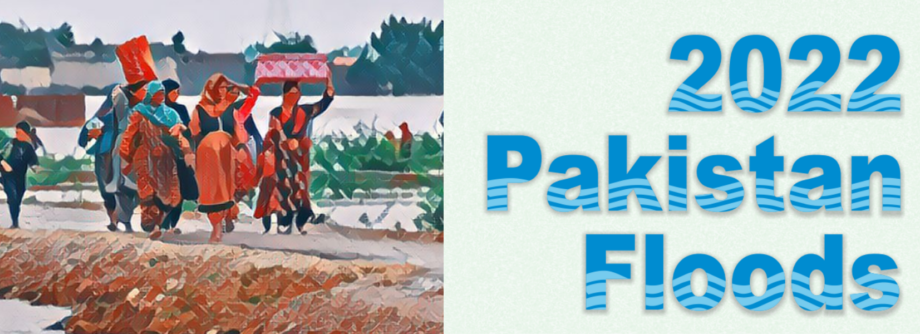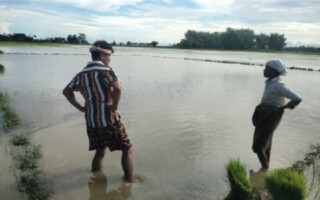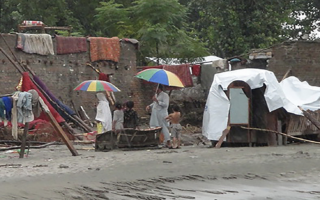
Devastating flooding in Pakistan has affected more than one-third of the country and displaced 32 million people. The unprecedented monsoon season began in July and caused widespread flooding across the country. Shelterless children, pregnant women, and the elderly bear the brunt of the disaster.
Population Council researchers in Pakistan have rapidly responded with data analysis to help optimize response, relief, and rehabilitation. The 2022 Pakistan Floods special series highlights visualizations from this research. Data for the analyses come from the sixth Population and Housing Census of Pakistan, Sindh Multiple Indicator Cluster Survey, Pakistan Demographic and Health Survey, and spatial data from UNOSAT including NASA-based satellite imagery.
In addition, the Council, with support from the Gates Foundation and UNFPA, provided much-needed relief supplies to 116 community midwives (CMWs) in nine of the worst-affected districts of Sindh and Balochistan. Council researchers worked closely with the provincial health departments, so the CMWs were provided a brief training on managing health issues in disaster situations and supplied with infection prevention supplies, clean delivery kits, essential medicines, hygiene products, and contraceptives.
In a short span of two months, 66 CMWs from Sindh met with 792 FP clients, conducted 479 deliveries, provided 664 women with antenatal and 368 with postnatal care, and 80 clients were referred to other facilities. These CMWs were also reimbursed for service provision covering antenatal care, delivery, postnatal care, family planning, and referral. Women and communities were extremely grateful for this much needed care.
The team has also produced videos to highlight the situation and needs.




